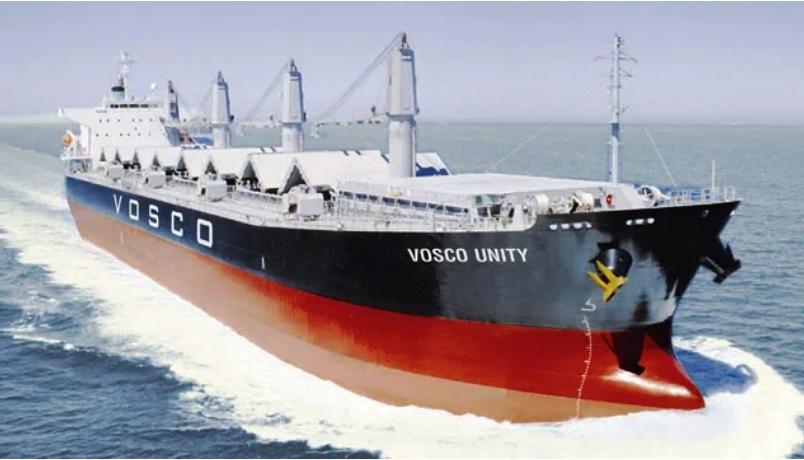《装卸时间与滞期费》第6版
CHAPTER 3 第3章
Commencement of laytime 装卸时间的起算
3.400 Having reviewed the previous cases and pointed out that the effect of the phrase in the present circumstances had never previously arisen, Lord Brandon concluded in favour of charterers, saying:
. . . I am of opinion, having regard to the authorities to which I referred earlier and the context in which the acronym ‘‘wibon’’ is to be found in the charterparty here concerned, that the phrase ‘‘whether in berth or not’’ should be interpreted as applying only to cases where a berth is not available and not also to cases where a berth is available but is unreachable by reason of bad weather.
3.400在对以往的案例进行了分析后指出,这一短语在目前所起的作用是以前从未出现过的,Brandon勋爵作了有利于承租人的结论,说:
……我认为,考虑到我前面提到的案例,以及在租船合同中出现的首字母缩略词‘WIBON’的前后背景,这一短语,应解释为仅适用于无空闲泊位的情况,而不应适用于泊位空闲,却是由于恶劣天气的原因无法到达靠泊的情况。
3.401 On this basis, the same conclusion would have been reached had the reason for non-accessibility been lack of water or possibly some prohibition on navigation to the berth by the port authority, although the latter might give rise to some complicated questions on availability and how much more this means than simply that there is no other vessel currently occupying the designated berth.
3.401基于这点,它同样也不应适用于,如果不能靠泊是由于水深不足或者可能是港口当局的某些航行禁令的情况,也是得出同样的结论,尽管后者可能会在泊位安排上带来一些复杂问题,而且这已经是不仅仅没有别的其它船舶占据着那个泊位的事情了。
3.402 Although the effect of the expression in a dock charter is not expressly discussed in any of the cases, it probably normally has no effect, so that time runs from arrival in dock as usual.
3.402尽管从没在哪个案例中明确讨论过这一短语在码头租船合同下的含义,但实际上它并不能够产生什么影响,装卸时间应同正常情况一样,从船舶靠码头后起算。
3.403 Even in a berth charter, the effect of the phrase may be largely neutralised by a suitable exception clause, such as the Centrocon strike clause. Thus, in The Amstelmolen, where the vessel concerned was unable to berth because of congestion, the Court of Appeal held that although laytime ran by virtue of the phrase ‘‘whether in berth or not’’, nevertheless there was an obstruction within the meaning of the Centrocon strike clause and time did not therefore count during the continuance of the obstruction.
3.403即使在泊位租船合同中,该短语的效力也会被适当的除外条款所中和,例如标准谷物租船合同中的罢工条款。所以,在The Amstelmolen—案中,所涉及的船舶由于港口拥挤未能靠泊,上诉法院判定:尽管根据‘不论靠泊与否’这一短语,装卸时间可以起算,不过,由于那种障碍(obstruction)应该归属标准谷物租船合同中罢工条款所设定的范畴,所以,在这种阻碍持续期间,装卸时间不计。
3.404 The Voylayrules 1993 provide:
22. ‘‘whether in berth or not’’ (WIBON) or ‘‘BERTH OR NO BERTH’’ shall mean that if no loading or discharging berth is available on her arrival the vessel, on reaching any usual waiting-place at or off the port, shall be entitled to tender Notice of Readiness from it and laytime shall commence in accordance with the charterparty. Laytime or time on demurrage shall cease to count once the berth becomes available and shall resume when the vessel is ready to load or discharge at the berth.
This differs somewhat from the definition in the Charterparty Laytime Definitions 1980 which reads:
26. ‘‘WHETHER IN BERTH OR NOT’’ or ‘‘BERTH NO BERTH’’—means that if the location named for loading/discharging is a berth and if the berth is not immediately accessible to the ship, a Notice of Readiness can be given when the ship has arrived at the port in which the berth is situated.
A not dissimilar definition appears in Baltic Code 2007:
WHETHER IN BERTH OR NOT (WIBON) or BERTH OR NO BERTH—if the designated loading or discharging berth is not available on her arrival, the vessel on reaching any usual waiting place within the port, shall be entitled to tender notice of readiness from it and laytime shall commence as provided under the charterparty.
It should be emphasised that these definitions will apply only if they are specifically incorporated into the charterparty.
3.404《1993年航次租船合同装卸时间解释规则》中规定:
22.‘无论靠泊与否’或‘有无泊位’是指:船舶到达后没有空闲的装货或卸货泊位,船舶抵达港口或港外任一通常等候的地点时,有权递交准备就绪通知书,装卸时间应按租船合同的规定起算。装卸时间或滞期时间一直计算到有泊位空出之时止,并当船舶在泊位上准备就绪进行装货或卸货之时继续计算。
它同下面这个《1980年租船合同装卸时间定义》所下的定义多少还是有点区别。
26.‘无论靠泊与否’或‘有无泊位’是指:如果指定的装货/卸货位置是一泊位,而船舶又不能立即自由靠泊的话,船舶就可以在抵达该港而这一泊位又被占用着时递交准备就绪通知书。
在《波罗的海2007年装卸时间规则》中,也没有明显的不同:
‘无论靠泊与否或有无泊位’意思是:如果在船舶到达时指定的装卸货泊位被占用不可用,在她抵达港内任一通常等候地点时,有权递交准备就绪通知书,装卸时间应按租船合同的规定起算。
需要强调的是,这些定义将仅适用于它们被明确并入到租船合同的情况。

《装卸时间与滞期费》购买链接(点击可购买)
海运圈聚焦专栏作者 魏长庚船长(微信号CaptWei)

 2019-05-07
2019-05-07 433
433 













